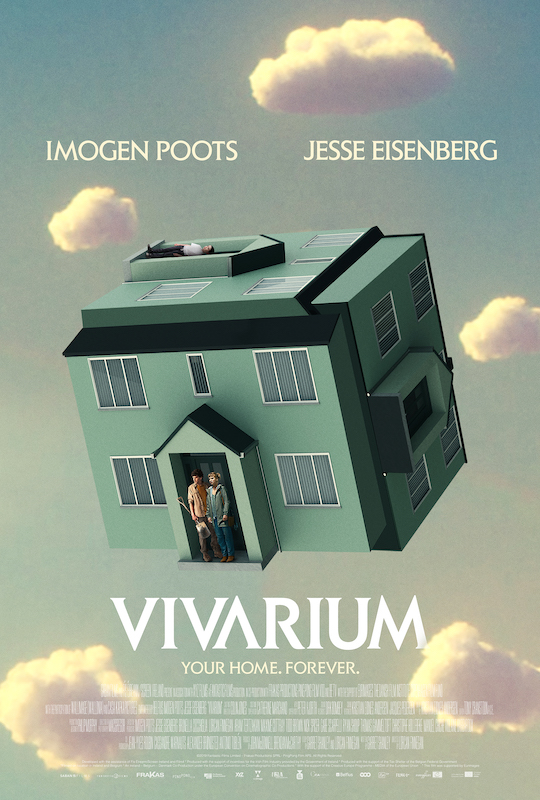Vivarium: The Horror of Hollowness
February 26, 2021
Lorcan Finnegan’s 2019 sci-fi thriller Vivarium was met with mixed reception from critics and poor reception from the general public. Many saw the film as pointless; with little tension, that left you feeling like you wasted your time. The point of the movie is nothing but a never ending, nihilistic pointless let down foreshadowed in the first 5 minutes of the movie.![]()
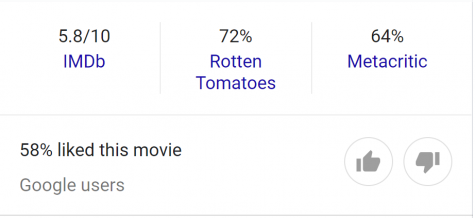
All of Lorcan Finnegan’s works deal with what he calls “Eco-Horror.” taking the conventional horror genre with his interests in ecological balance. The point of his filmography is to force his audience to think about the importance of preserving and coexisting with nature. ![]()
The opening scene tells the story of the Cuckoo bird. The Cuckoo bird has an unconventional method of raising its young. The Cuckoo bird lays its egg in the nests of other birds and has the mother off another species raise it as their own. After the Cuckoo hatches, the chick will push the other chicks out of the nest and mimic its host mother impersonating her own chick. As the Cuckoo grows it looks completely alien from its host yet the mother continues to feed and raise it as her own. ![]()
![]()
![]()
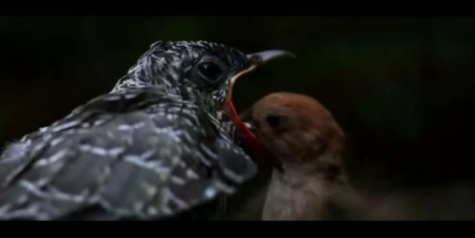
The movie applies this story of the Cuckoo the human condition. Our two main characters Gemma, (Imogen Poots) a kindergarten teacher and Tom, (Jesse Eisenberg) the school groundskeeper. Are looking to buy a house and get stuck with having to raise an “alien” child as their own. Our young couple plays both the role as the “Momma Bird” raising their mutant alien son but also the role of the baby birds being pushed out of the nest and dying. The plot of the movie has been revealed to us in the first act of the movie but it is the messages of nature, Civilization and the Human life cycle that make this film worth the watch.
The couple visits a real estate company called Yonder and meets Martin, the agent working there. Martin acts extremely off, he doesn’t seem to know how to interact with others with awkward pauses and exaggerated gestures. He suggests they go to check out the houses and follows them to one of the Yonder homes.
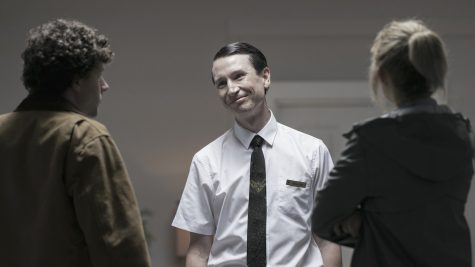
Everything about the Yonder tract houses seems fake or artificial, every house looks exactly the same with perfect yards, perfect roads and perfect clouds. It’s all perfect and identical but completely null and hollow of any life or emotion. Yonder is an imitation that tries to capture the essence of a perfect home with zero understanding of the complexity of human emotions that make something home. Which is reiterated throughout the movie. Every plant in the house is artificial, the paintings throughout the house are nothing but paintings of the house or paintings of the rooms each painting is in. Completely void of any emotion or purpose completely unaware of the point of art. On the outside everything seems perfect but there is nothing inside.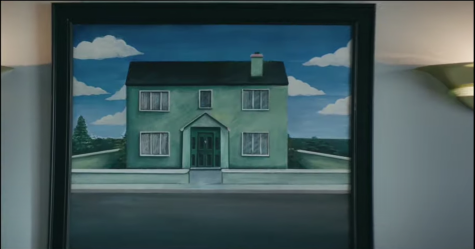
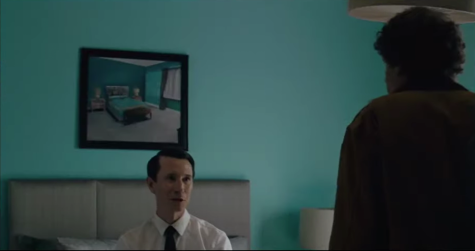
This hollowness is used to portray the importance of nature in our lives. Yonder is completely void of nature, no real sun, no real grass, no real clouds, wind, soil, and in the end no life. The food our couple is given has no taste and seems to have little to no nutritional value. It is the lack of nature that kills our character as they live through this dull purgatory they are trapped in. 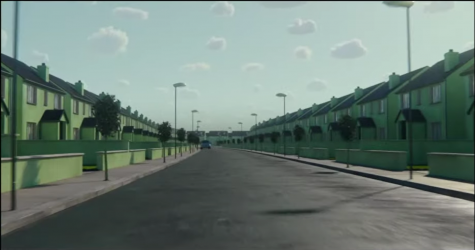
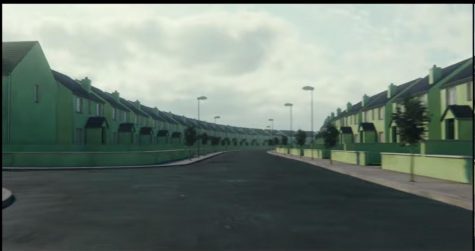
The other side of the film is introduced with “the baby” playing the role of the Cuckoo.
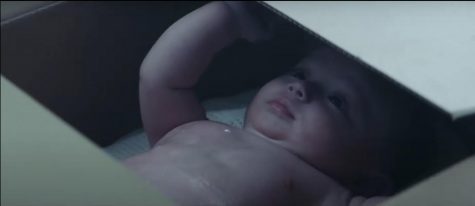 After being trapped in Yonder the baby Cuckoo forces its way into their home with the directions to raise the child in order to earn their freedom. Mostly Gemma takes on the role of the Momma Bird feeding and taking care of it as it grows up. The couple quickly realize the inhumanness of “the child” as it grows up extremely fast. This is used to help visualize the impact our actions have on influencing and shaping our children. Which is often overlooked because of how slow the process of human development is in the real world. The child constantly repeats and mimics what Gemma and Tom say and do in an unsettling adult tone. Which becomes especially disturbing when “the child” repeats when Gemma and Tom fight talking back and forth to itself mimicking their intonation, stress and rhythm. The child tries its best to do what its “parents” do and follows them everywhere.
After being trapped in Yonder the baby Cuckoo forces its way into their home with the directions to raise the child in order to earn their freedom. Mostly Gemma takes on the role of the Momma Bird feeding and taking care of it as it grows up. The couple quickly realize the inhumanness of “the child” as it grows up extremely fast. This is used to help visualize the impact our actions have on influencing and shaping our children. Which is often overlooked because of how slow the process of human development is in the real world. The child constantly repeats and mimics what Gemma and Tom say and do in an unsettling adult tone. Which becomes especially disturbing when “the child” repeats when Gemma and Tom fight talking back and forth to itself mimicking their intonation, stress and rhythm. The child tries its best to do what its “parents” do and follows them everywhere.
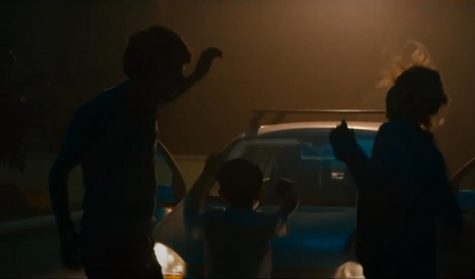
When Gemma and Tom realize that their car battery isn’t dead they dance in the street together, finally experiencing some real emotion for the first time in months. It is when “the child” notices its parents dancing that it joins in and quickly ruins the fun when it knocks into Tom causing him to hit his head on the curb. The music stops but the child continues to dance. This alien nature of “the child” causes Tom to reject the child and he locks the child in the car in the hopes that it would die. Gemma knows that it isn’t her child, that it isn’t human, and ultimately has no love for “the child” but despite it all she can’t bring herself to let Tom kill it.
Tom from this point on wants nothing to do with the child and spends all of his time digging a hole in the front yard thinking he might find a way out. This rift in the family is all too real for many. The unwanted kid, abandoned by his father, raised by his mother not out of love but out of obligation. The mistreatment and verbal abuse “the child” is faced with stunts its development only exacerbating its inhumanness. 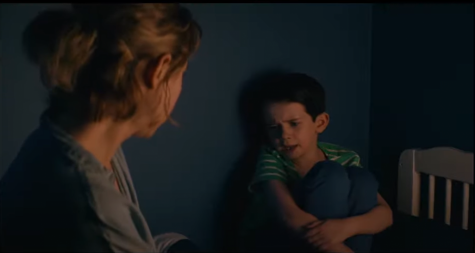
The neglect “the child” faces causes it to gravitate towards the “aliens” that created the vivarium. It starts watching this strange television that “the parents” can’t understand and meets and learns different things from the outside world that the two have no clue of. Despite this Gemma continues to fulfill her obligation as the “Momma Bird” until the child is much bigger than herself, just like the Cuckoo.
The film also uses the significance of the number 9 as an underlying theme. When Tom and Gemma and trying to escape the vivarium no matter how long they drive or where they turn they always end up coming back to the same house with the number 9. The number 9 has many meanings throughout the world but they all have to do with the end of a cycle, either the 9 months of gestation or the phases of experience. This cycle being a critique on the monotony and lifelessness of suburban life. 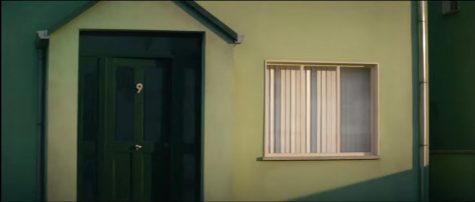 In their emotionless purgatory their life became nothing more than a meaningless cycle. They eat processed foods with no flavor, Tom works all day digging his hole that leads to nowhere, Gemma goes through the motions of raising their emotionless child in their emotionless house, they lose interest in each other, and eventually lose themselves.
In their emotionless purgatory their life became nothing more than a meaningless cycle. They eat processed foods with no flavor, Tom works all day digging his hole that leads to nowhere, Gemma goes through the motions of raising their emotionless child in their emotionless house, they lose interest in each other, and eventually lose themselves.
With a running time of an hour and forty minutes these messages begin to feel underwhelming. Which is where the film seems to fall short. These complex social critiques and motifs become seemingly meaningless as the film progresses. All of the metaphors and foreshadowing, unresolved issues and unanswered mysteries, seems wasteful in the end. But this is the punch of the movie, going all the way back to the beginning in the Cuckoo’s nest. That things are just the way things are pointless. The film can be interpreted as being about nature but in reality it is dealt with a more metaphorical sense.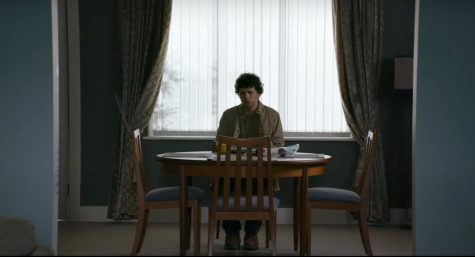
After the opening scene Gemma walks over to one of her students looking down at the dead chick the Cuckoo had kicked out of the nest, the little girl asks Gemma who would do such a thing to the poor baby birds to which Gemma suggests it was a Cuckoo and explains how it needed a nest. The girl is confused and asks why the Cuckoo doesn’t just make its own nest, and Gemma replies “Because that’s nature, that’s just the way things are.” There is no rationalization for the actions of Gemma and Tom is continuing to raise “the child” because it’s not supposed to be rationalized.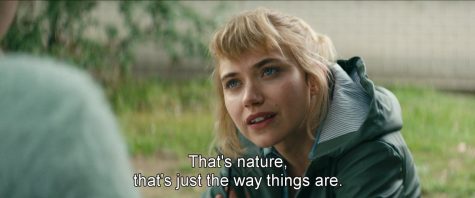 Tom works on his hole until he eventually dies from malnutrition and disease and is buried in the grave he dug himself. Gemma tries her best to form a seemingly genuine connection with “the child” only to have her final words be an angry “I’m Not Your Mother.” Nothing ever comes from the work and effort they put in; they are only stuck back at where they started. The “aliens” aren’t an evil antagonist with a master plan for world domination. They are doing nothing else but doing what they do in order to survive. There is no drama or deeper meanings to anything, because that’s life, nothing more than a meaningless endless paradox.
Tom works on his hole until he eventually dies from malnutrition and disease and is buried in the grave he dug himself. Gemma tries her best to form a seemingly genuine connection with “the child” only to have her final words be an angry “I’m Not Your Mother.” Nothing ever comes from the work and effort they put in; they are only stuck back at where they started. The “aliens” aren’t an evil antagonist with a master plan for world domination. They are doing nothing else but doing what they do in order to survive. There is no drama or deeper meanings to anything, because that’s life, nothing more than a meaningless endless paradox.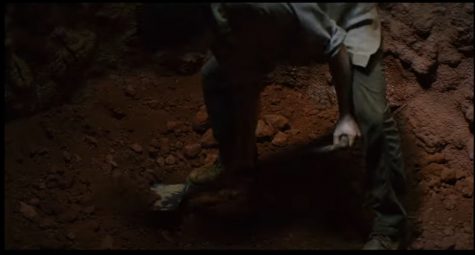
After Gemma and Tom die and “the child” buries them in Tom’s hole, the child leaves the vivarium returning to the original real estate company and taking the position of the last martin only to continue the cycle all over again, an endless loop just like the number 9. ![]()


